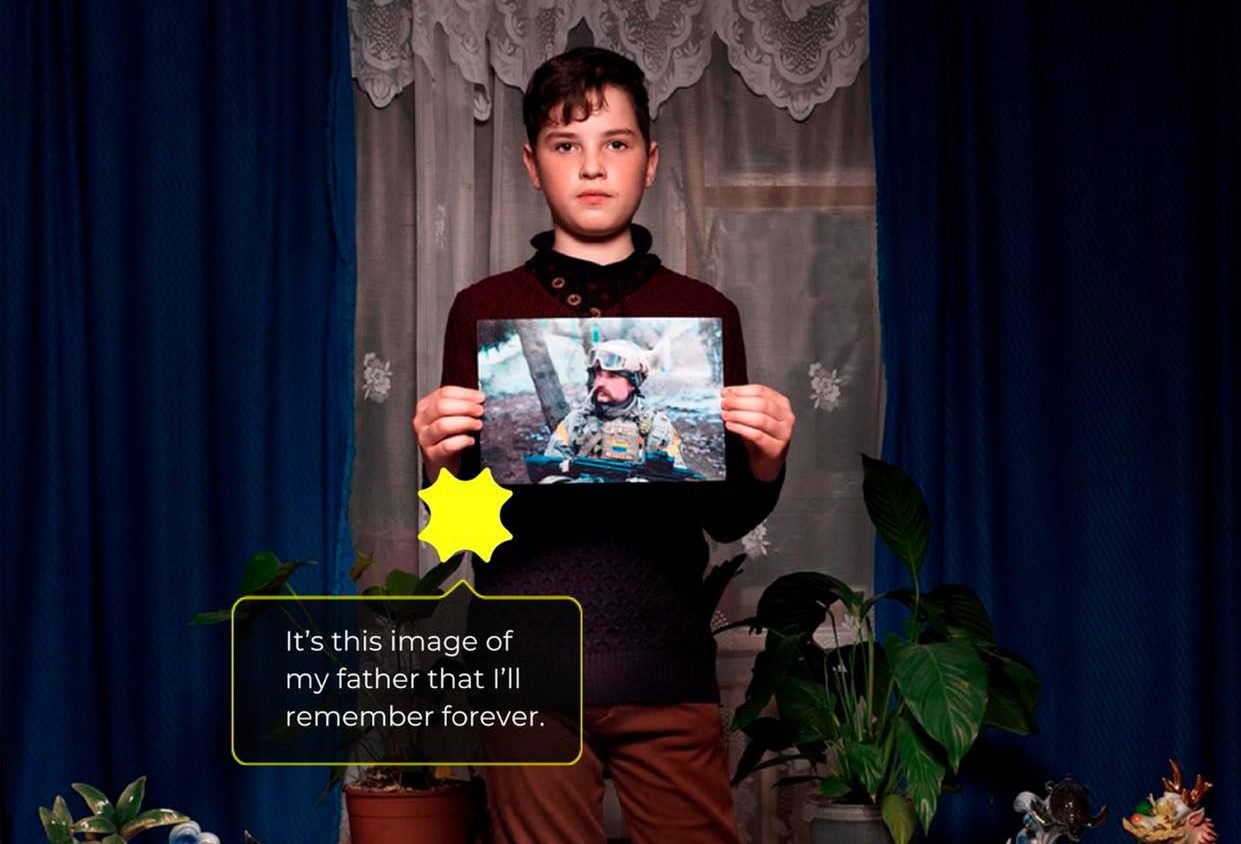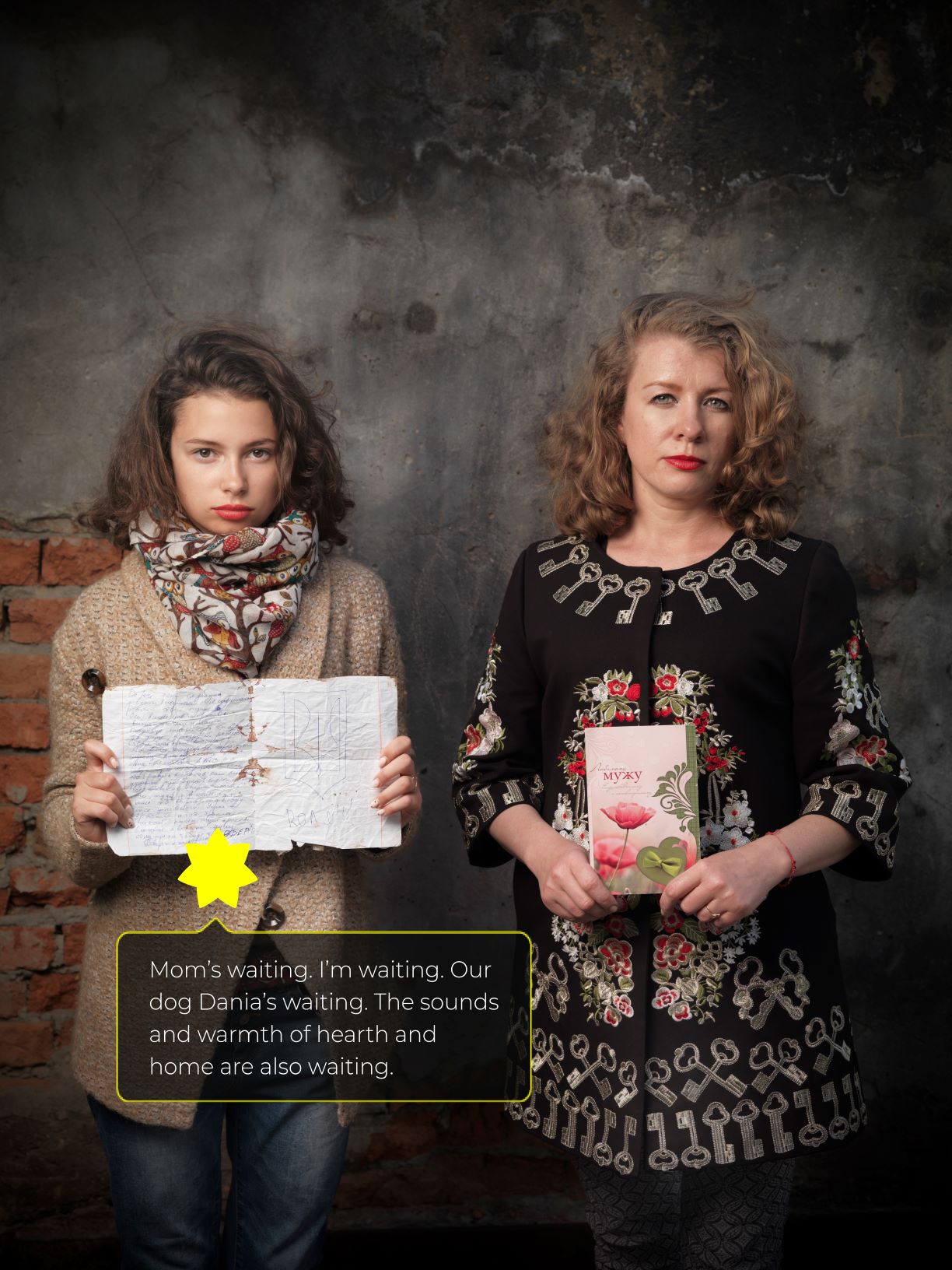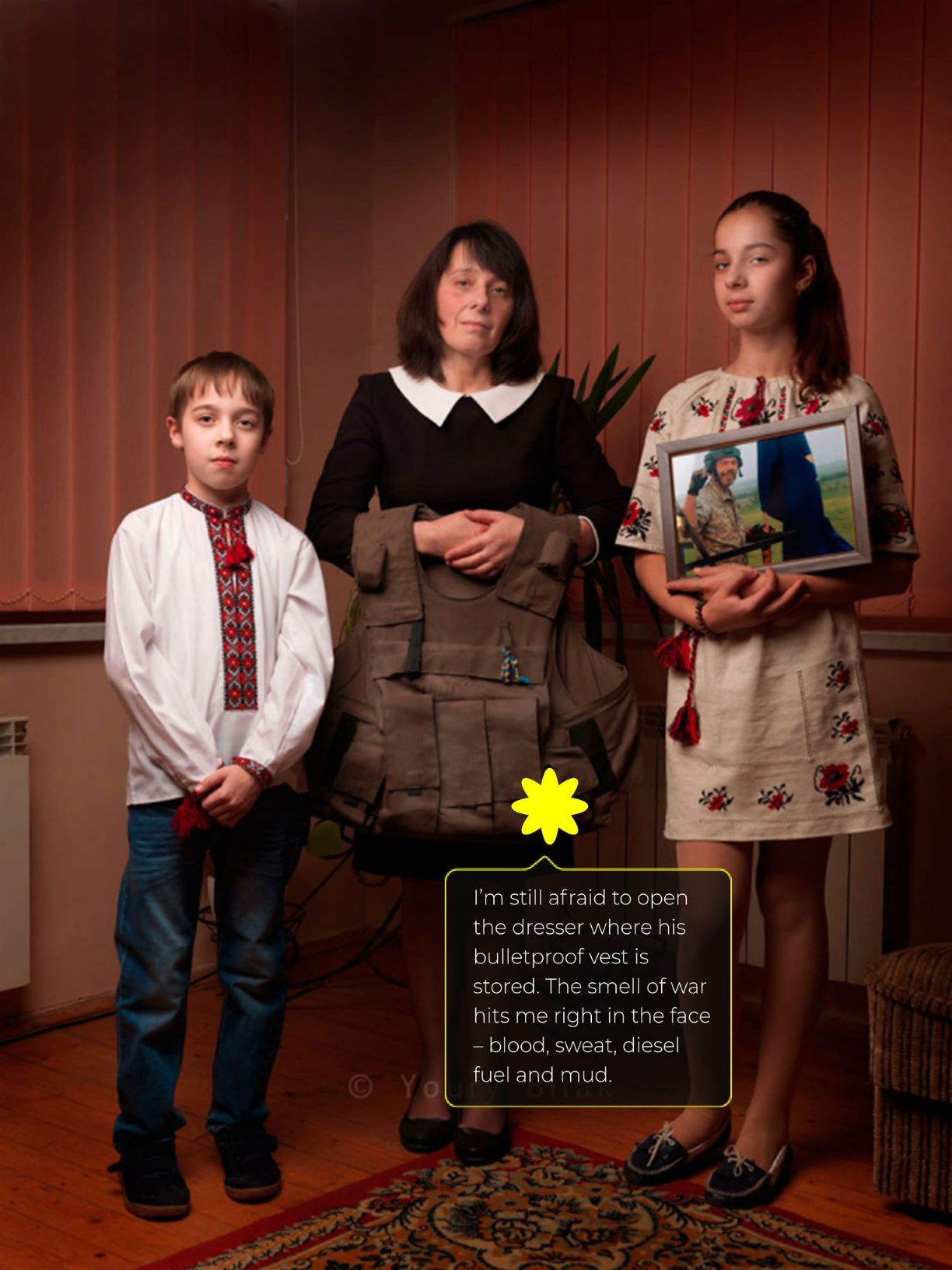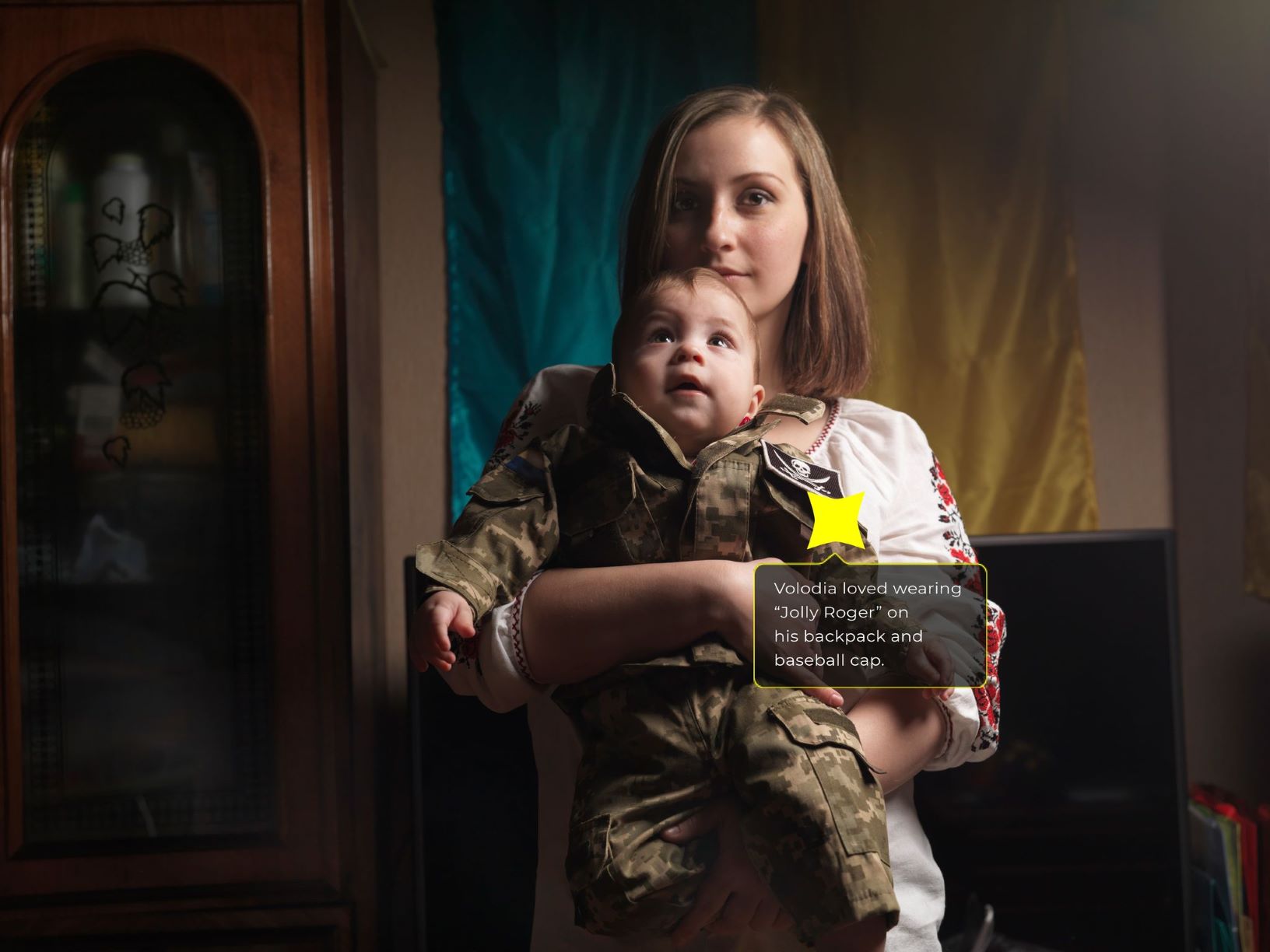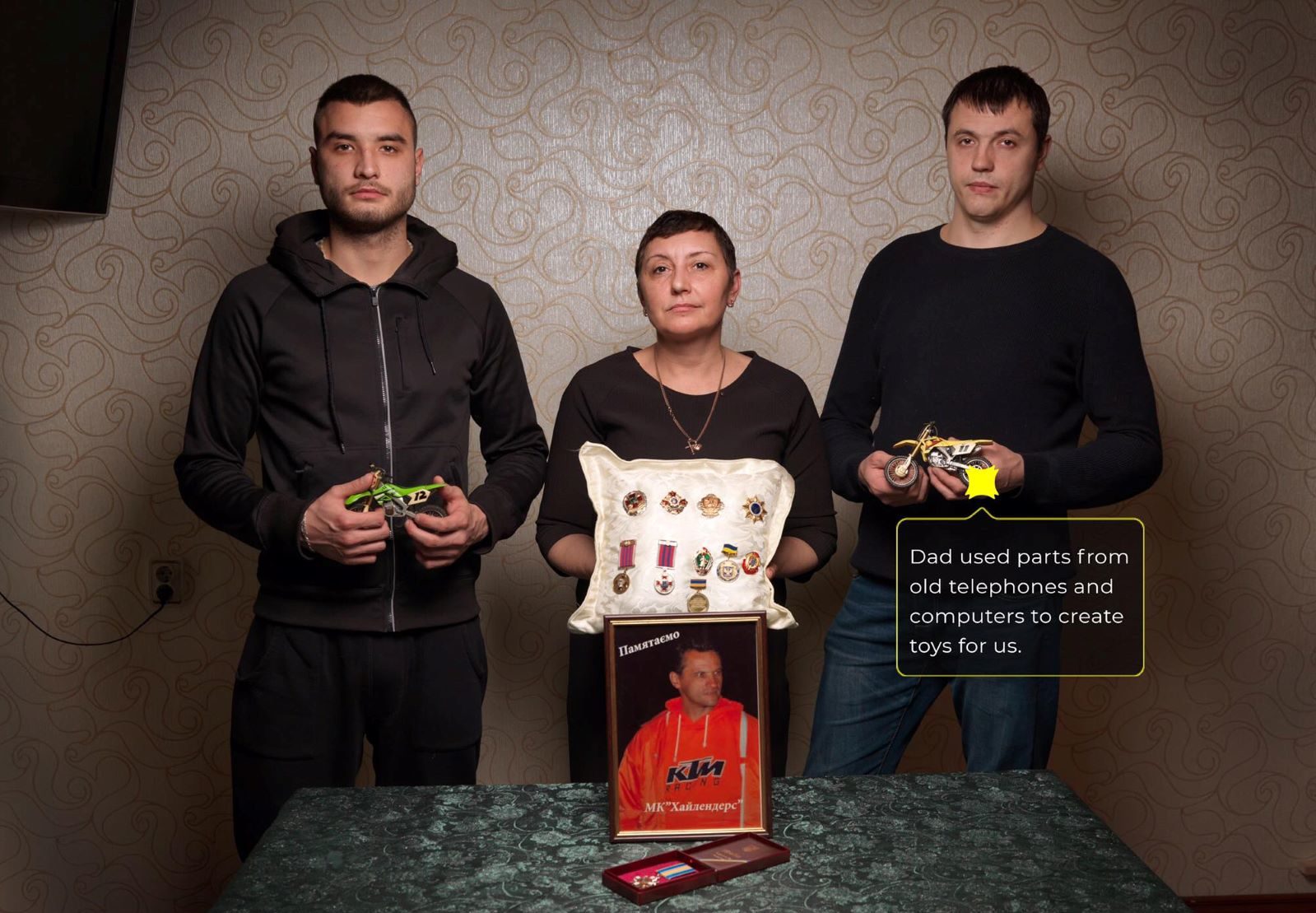A fiercely patriotic young man, Vyacheslav Kyrylov, call sign “Kozak”, came home one day in February 2014 and told his family that he was going to fight with the Azov Battalion as a volunteer.
One year later, during a so-called ‘ceasefire’ decreed by the Minsk Protocol, Vyacheslav was killed while repelling an enemy attack on Shyrokyne, a strategic coastal resort situated between Mariupol and Novoazovsk. Vyacheslav’s Azov Battalion eliminated 10 militants of the occupying enemy forces, but suffered their own heavy losses - 7 dead and 50 wounded.
It is part of the Plus 1 project created to memorialize the fallen Defenders of Ukraine.
The Positive Cossack
Author: Ruslan Horovy
Vyacheslav Yuriyevych Kyrylov. Call sign “Kozak” (Cossack). These words reflect the entire life of a man whose breath was abruptly cut short.
It’s extremely difficult to write about a person I’ve never met. And it gets even harder, because you understand that you must write so that everyone can share your experience.

Where should I start? From your childhood? From your years at school or at the vocational college? How you repaired a flat tyre on your bike or shattered the neighbour’s window with a ball? I don’t know if you actually did all that, although you probably did, because all boys do so. I know very little about your childhood and adolescence. Only that you were born in Ukraine, lived with your family in Russia for eleven years, returned and attended the 9th grade. However, is it really important to know where a Cossack lived and if he returned? The important thing is that you remained a true Ukrainian from the city of Odesa.
 I’ll begin with the Maidan. Before that, you didn’t wear a Cossack mustache or an oseledets [Ukrainian Cossack hairstyle, which features a long lock of hair, commonly on the top or at the front of an otherwise closely shaven head-Ed]. You were a fairly independent young man, and worked as the director of a firm. But, then it happened… the events unfolded in Kyiv. You watched the students get beaten; you saw the protests, the retaliation and brutality of the police. You decided to go to Kyiv. You saw the difference between what was happening in the capital and at home. You saw separatism rear its ugly head in Odesa... and you made your choice. You remained a faithful son of your Homeland.
I’ll begin with the Maidan. Before that, you didn’t wear a Cossack mustache or an oseledets [Ukrainian Cossack hairstyle, which features a long lock of hair, commonly on the top or at the front of an otherwise closely shaven head-Ed]. You were a fairly independent young man, and worked as the director of a firm. But, then it happened… the events unfolded in Kyiv. You watched the students get beaten; you saw the protests, the retaliation and brutality of the police. You decided to go to Kyiv. You saw the difference between what was happening in the capital and at home. You saw separatism rear its ugly head in Odesa... and you made your choice. You remained a faithful son of your Homeland.
And then it happened… the second of May, two thousand and fourteen. You and your friends gathered on Hretska Square in Odesa; you were planning to march through the city with Ukrainian flags. There were skirmishes, and the first shots were fired by collaborators hiding behind the police. And, before your own eyes, you saw a young man from Bilhorod-Dnistrovsky, standing almost next to you, killed. You dragged the wounded protestors to safety, and your gaze turned to cold steel. The enemy retreated... ran away. You stayed in a tent camp on Kulykovo Pole Square in Odesa, and then in the Trade Union Building in Kyiv. You saw Molotov cocktails flying from the rooftops towards you, and then, when the building began to burn, you tried to save your enemies from the flames.
 You didn’t forget anything... not one moment of that terrible day. And that’s why you joined the Odesa Self Defence Battalion. You patrolled the streets with your brothers and sisters. Later, together with other volunteers of the Shturm Battalion, you escorted humanitarian convoys and helped refugees from Luhansk Oblast. But, all this time, you were getting ready… not to work as a volunteer, but to fight in a real war. You bought yourself a uniform… everything - from a bulletproof vest and helmet, to military boots and knee pads. And then you came home one day and informed your family that you were going to join the Azov Battalion as a volunteer. You tried to soothe things over for your loved ones. They believed you were going to train, keep in shape, and then return to Odesa. In fact, you were getting ready for combat with the enemy. When your mother greeted you on your birthday on December 19, St. Nicholas Day, you didn’t tell her that, in a few hours, you’d be taking the oath of allegiance on Sofiyska Square in Kyiv. You forgot to tell her that you’d get on the bus with other volunteers and head for the front in Donbas.
You didn’t forget anything... not one moment of that terrible day. And that’s why you joined the Odesa Self Defence Battalion. You patrolled the streets with your brothers and sisters. Later, together with other volunteers of the Shturm Battalion, you escorted humanitarian convoys and helped refugees from Luhansk Oblast. But, all this time, you were getting ready… not to work as a volunteer, but to fight in a real war. You bought yourself a uniform… everything - from a bulletproof vest and helmet, to military boots and knee pads. And then you came home one day and informed your family that you were going to join the Azov Battalion as a volunteer. You tried to soothe things over for your loved ones. They believed you were going to train, keep in shape, and then return to Odesa. In fact, you were getting ready for combat with the enemy. When your mother greeted you on your birthday on December 19, St. Nicholas Day, you didn’t tell her that, in a few hours, you’d be taking the oath of allegiance on Sofiyska Square in Kyiv. You forgot to tell her that you’d get on the bus with other volunteers and head for the front in Donbas.
You had just turned thirty-three… and on this day you went to defend your country from the enemy.
You arrived at the base near Mariupol. You saw peaceful civilians being killed during the January attacks on Mariupol. You wanted to protect as many of them as possible. You and the Second Assault Sotnya went to repel the enemy from the villages - Pavlopol, Kominternovo, Lebedynske, Berdianske, Shyrokyne. For you, these were not abstract names; these were places that together, you and your men liberated from the enemy. You were euphoric, flying high, because you’d won back these lands from the invaders. But suddenly, everything changed. Somewhere, in faraway Minsk, politicians agreed on something called a ‘ceasefire’, saying that “a bad peace was better than an open quarrel”. You and your men were no longer supplied with fuel and ammunition. And they forbade you to open fire.
February fifteenth, two thousand and fifteen

The ceasefire announced by the representatives of the Minsk Protocol* was to begin on that day. All guns, cannons and artillery were to fall silent at zero hours zero minutes. But, they did not. Dry news reports of that day are more eloquent than promises:
“On February 15, 2015, Russian terrorists attempted to break through the line of armoured vehicles in Shyrokyne. Under cover of thick fog, four tanks and enemy militants, backed by artillery and mortar fire, entered the village…”

Shyrokyne. You and your men are advancing carefully when the shelling begins. What was that? Mortar fire? Grenade launchers? Or maybe both? Your friend from Odesa, call sign “Fizruk”, falls to the ground. You rush to help him. He suffers from multiple contusions and wounds caused by shell fragments. Together with another fighter, you drag him off the road, to a nearby house. And then, another explosion. But, as ill luck would have it, at that very moment, you’re standing in full view. You throw yourself on “Fizruk” and another soldier “Skladny”, shielding them both with your body. You painfully feel sharp metal fragments piercing your body, breaking your bones and tearing your veins.
You lose consciousness, but “Skladny” revives you to your senses. Your comrades put you and “Fizruk” in an armoured vehicle and drive away from the line of fire. Then, in the ambulance, you continue talking; you’re worried about the other wounded men. You arrive at the hospital in Mariupol and they wheel you directly into surgery…
Your heart stopped at thirteen-thirty…
You ascended to the Heavens at thirteen-thirty on the day the so-called ‘ceasefire’ was set to begin.
You were only thirty-three years old.
Vyacheslav Yuriyevych Kyrylov
Call sign “Kozak”. A true Ukrainian Cossack!

The project is built around 22 individual exhibition stands. In iconic and powerful moments captured by a photographer’s camera – Youry Bilak, a Frenchman of Ukrainian descent – Ukrainian families tell the stories of their loved ones – Ukrainian soldiers who perished in the war. Each narrative, each individual is but one small grain, one tiny unit of a module in a living organism. By telling his story, we bring him back to life.
Each family chose an object that most reminds them of their departed: a father’s jacket, a guitar, a suit of medieval armour, a book. These family artifacts reflect a living continuation of the departed loved one. Ukrainian artists, intellectuals, and journalists were invited to create original texts about each soldier.

